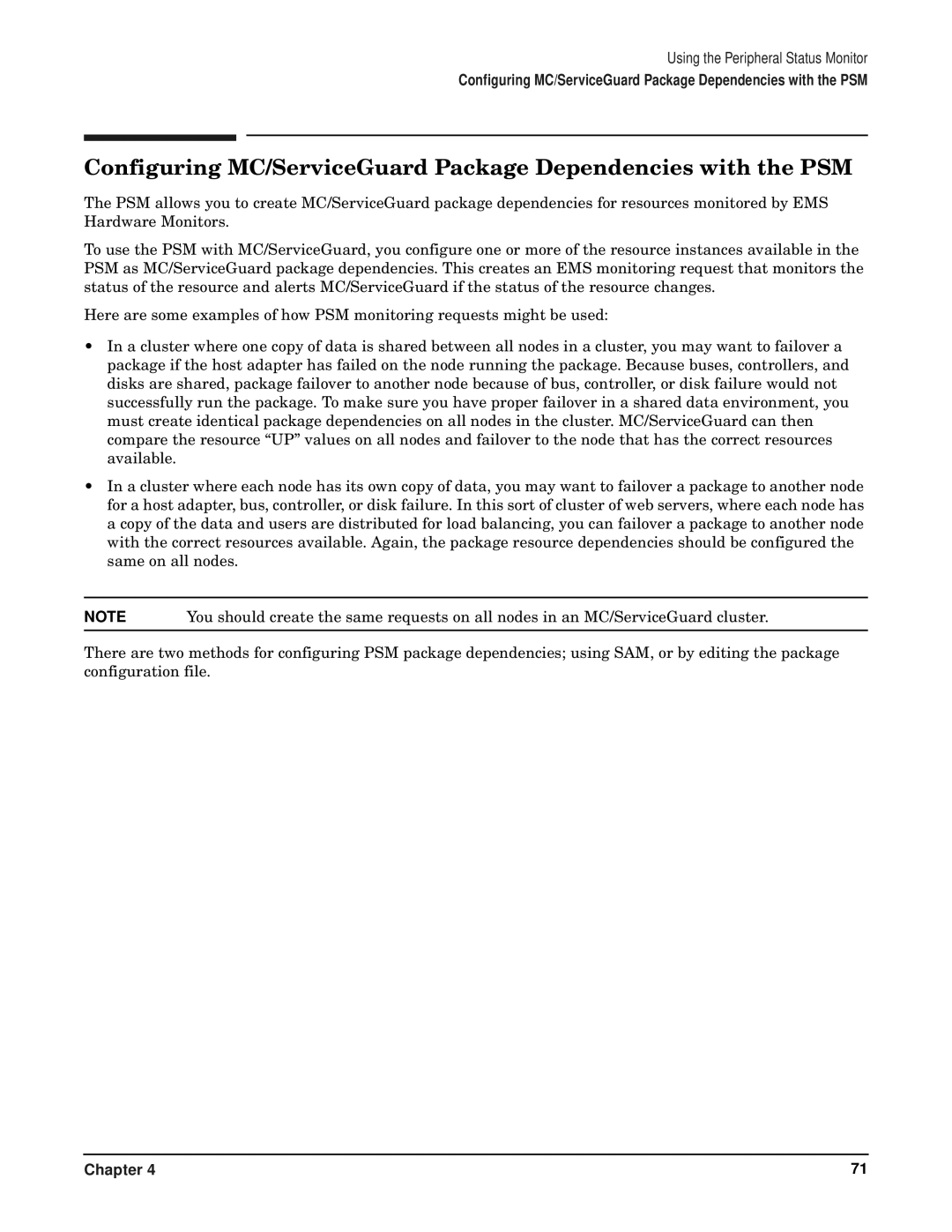
Using the Peripheral Status Monitor
Configuring MC/ServiceGuard Package Dependencies with the PSM
Configuring MC/ServiceGuard Package Dependencies with the PSM
The PSM allows you to create MC/ServiceGuard package dependencies for resources monitored by EMS Hardware Monitors.
To use the PSM with MC/ServiceGuard, you configure one or more of the resource instances available in the PSM as MC/ServiceGuard package dependencies. This creates an EMS monitoring request that monitors the status of the resource and alerts MC/ServiceGuard if the status of the resource changes.
Here are some examples of how PSM monitoring requests might be used:
•In a cluster where one copy of data is shared between all nodes in a cluster, you may want to failover a package if the host adapter has failed on the node running the package. Because buses, controllers, and disks are shared, package failover to another node because of bus, controller, or disk failure would not successfully run the package. To make sure you have proper failover in a shared data environment, you must create identical package dependencies on all nodes in the cluster. MC/ServiceGuard can then compare the resource “UP” values on all nodes and failover to the node that has the correct resources available.
•In a cluster where each node has its own copy of data, you may want to failover a package to another node for a host adapter, bus, controller, or disk failure. In this sort of cluster of web servers, where each node has a copy of the data and users are distributed for load balancing, you can failover a package to another node with the correct resources available. Again, the package resource dependencies should be configured the same on all nodes.
NOTE | You should create the same requests on all nodes in an MC/ServiceGuard cluster. |
There are two methods for configuring PSM package dependencies; using SAM, or by editing the package configuration file.
Chapter 4 | 71 |
